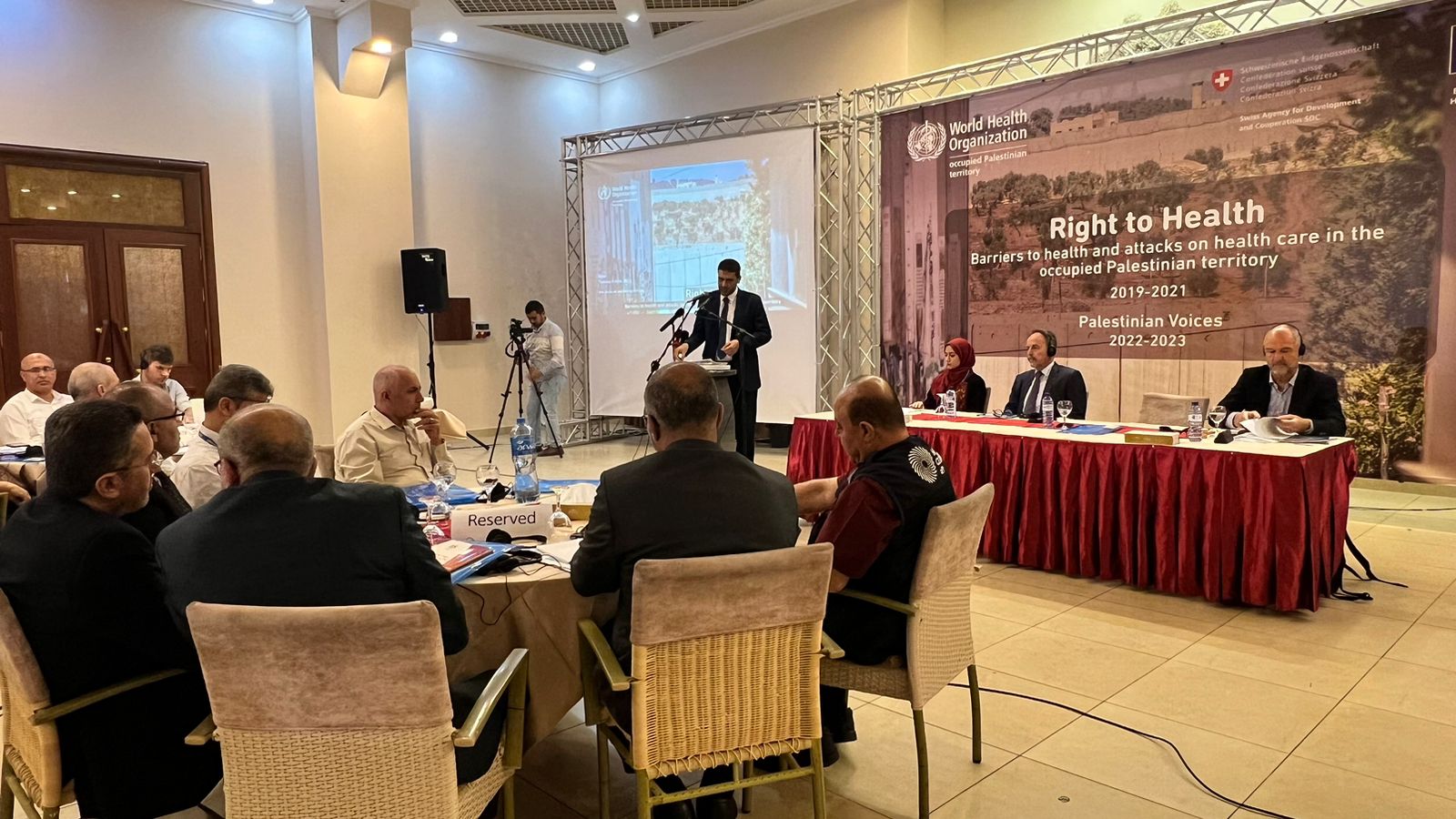
6 June 2023, WHO held an event in Gaza to engage partners on mobilizing action to address the key findings and recommendations of two reports on the Right to Health: Barriers to Health Access and Attacks on Health Care 2019 to 2021 and Palestinian Voices 2022 to 2023.
Opening remarks were delivered by Dr Yousef Abu Rish, Deputy Minister of Health, Mr Thomas Jenatsch, Deputy Head of Cooperation for the Swiss Agency for Development and Cooperation, and Dr Richard Peeperkorn, WHO Representative for the occupied Palestinian territory.
The reports outline how fragmentation of the Palestinian people, implementation of a permit regime, physical obstacles to movement, and protection gaps cause health inequities and create substantial barriers to health care provision and health access in the occupied West Bank, including east Jerusalem, and Gaza Strip.
According to the reports, over a third (35%) of patient permit applications and over a half (54%) of companion permit applications were not approved in time for patients to reach their hospital appointments during the period from 2019 to 2021. In the same period, nearly a third (30%) of children were approved permits without either parent approved to accompany them. Overall, referral patients needing exit from the Gaza Strip are among the most vulnerable in society, where WHO documented that nearly one in ten (9% of) patients had died at six months from the date of their first hospital appointment.
The event participants heard from Maysa, mother of five-year-old Ameer, who discussed the experience of successive delays trying to get Ameer access to eye care outside the Gaza Strip. “When Ameer was prevented access to the ophthalmic hospital in Jerusalem, we couldn’t afford to travel to Egypt. It was a very stressful time, we felt lost. I was thankful for the support that we received as a family, and that we were eventually able to reach Jerusalem,” she said.
Mr Isam Younis, Director of Al Mezan Center for Human Rights, discussed the appeals and human rights documentation and advocacy his organization carries out to support Palestinian patients. He stated, “Stringent restrictions on the movement of people and goods from and to the Gaza Strip by Israeli authorities constitutes a policy of collective punishment, prohibited under international law. The arbitrary delay or denial of access for patients represents a direct violation of their right to health.”
Discussions focused on additional findings of the reports: barriers to the sustainable availability of health care and the continued high number of attacks on health care affecting patients, companions, health staff, ambulances, and health facilities in the occupied Palestinian territory.
Dr Peeperkorn concluded, “Health is a fundamental right for every human being. WHO remains committed to sustained documentation and monitoring of barriers to the right to health, as well as to enhancing and mobilizing our collective advocacy towards addressing the structural and root causes of those barriers and promoting respect, protection, and fulfilment of the right to health for Palestinians.”
WHO webpage with the reports and resources for the Right to Health: https://www.emro.who.int/opt/information-resources/right-to-health.html




